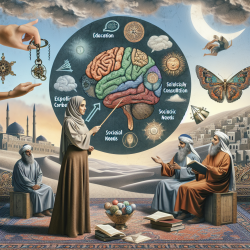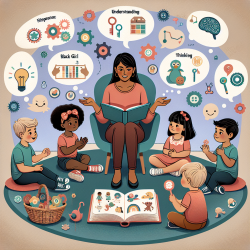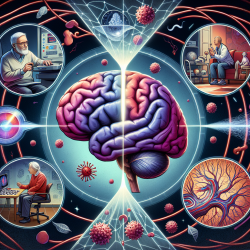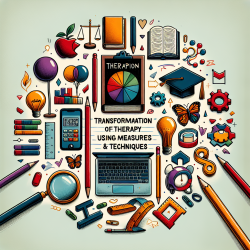Empowering Change: Key Elements of Psychotherapy in Iran
In the ever-evolving field of psychotherapy, understanding the cultural and societal nuances that influence therapeutic practices is crucial. A recent study titled A Mixed-Method Modified Delphi Study toward Identifying Key Elements of Psychotherapy in Iran sheds light on the essential components that can drive effective psychotherapy in Iran. This study not only offers insights into the Iranian context but also provides a framework that can be adapted to other cultural settings.
Key Findings of the Study
The study employed a mixed-method modified Delphi approach, gathering insights from 70 psychotherapy experts in Iran. Through a structured consensus process, the study identified four key themes that are pivotal to the practice of psychotherapy in Iran:
- Systematic Education/Training: The need for structured and consistent training programs for psychiatry residents and clinical psychology students was emphasized. The experts highlighted the importance of integrating both theoretical and practical training under skilled supervision.
- Psychotherapist Competency: Competency in psychotherapy requires scientific training and effective communication skills. The study underscored the necessity for certification and ongoing professional development to ensure therapists are equipped to meet the needs of their clients.
- Psychotherapy Reflective of Iranian Societal Needs: Tailoring psychotherapeutic interventions to the unique cultural and socioeconomic context of Iran is essential. The experts advocated for assessments that identify societal problems and appropriate therapeutic approaches.
- The Substrate of Psychotherapy: This theme focuses on the ethical and scientific principles that underpin psychotherapy. The study calls for a robust framework to support and supervise psychotherapists, ensuring adherence to ethical standards.
Implications for Practitioners
For practitioners in the field of psychotherapy, these findings offer a roadmap for enhancing their skills and improving client outcomes. By embracing systematic education and focusing on competency, therapists can ensure they are well-prepared to address the diverse needs of their clients. Furthermore, understanding the cultural context and adhering to ethical principles can lead to more effective and sustainable therapeutic practices.
Encouraging Further Research
This study serves as a catalyst for further research in the field of psychotherapy, not only in Iran but globally. By exploring the key elements identified in this study, researchers can develop culturally sensitive frameworks that enhance the effectiveness of psychotherapy across different regions. Practitioners are encouraged to engage with these findings and consider how they can be applied to their own practice.
To read the original research paper, please follow this link: A Mixed-Method Modified Delphi Study toward Identifying Key Elements of Psychotherapy in Iran.










